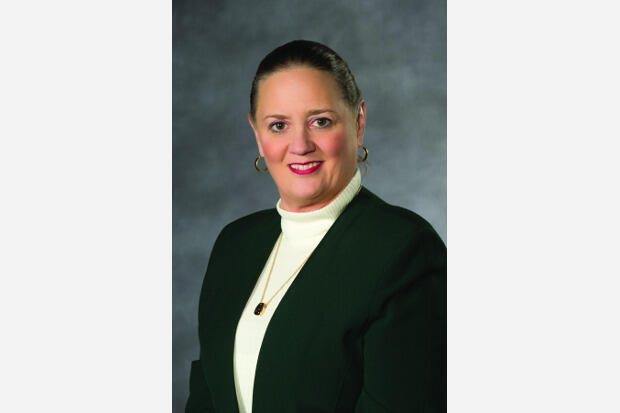
July 5, 2016
VCU School of Nursing receives grant to increase nurses in community-based clinics
Share this story
A roughly $800,000 grant will allow the Virginia Commonwealth University School of Nursing to implement a program to increase the number of nurses in community-based clinical sites that provide care to underserved populations.
The two-year grant from the U.S. Department of Health and Human Services’ Health Resources and Services Administration will increase nursing students’ clinical experience in primary care and community-based settings with the goal of encouraging them to seek community-based positions when they graduate.
Tamara Zurakowski, Ph.D., clinical associate professor in the VCU Department of Adult Health and Nursing Systems, received the grant for her project “Primary care Options to Maximize Opportunities to Transform Education in Nursing (PrOMOTE-Nursing).” The project aims to address the lack of community-based nurses who are prepared to meet the health care needs of the underserved.
“Nearly one-third of nurses working in a community-based setting do not have a bachelor's degree,” Zurakowski said. “There is a tremendous need for more highly qualified nurses in these locations.”
PROMOTE-Nursing expands on the VCU School of Nursing’s current service-learning model that requires students to complete four hours per week of clinical service during their senior community health clinical course. Through partnerships with innovative community-based primary care settings and population-focused programs, the project will provide an additional eight hours per week of clinical experience for students interested in community-based care.
“I am looking forward to getting students excited about community health, as well as giving them solid skills to ensure they’re comfortable working in these settings,” said Zurakowski, who has worked in community health nursing for more than 38 years. The project also aims to improve students’ knowledge of culturally competent health care as well.
At least five students per semester will be involved during the project’s first year and at least 10 students per semester during the second year. The project also involves recruiting highly skilled and experienced nurses in the clinical setting to act as preceptors to ensure students meet learning objectives.
Each student will be assigned two clinical agencies — one focused on wellness and population health and the other focused on primary care. Partner sites include the Richmond Health and Wellness Program, the Ambulatory Care Center at VCU Health, the Richmond City Health District and CrossOver Healthcare Ministry. The sites were selected because they provide health care to underserved populations.
Richmond has a need for more services to keep people healthy and out of the hospital.
The project also includes plans to establish an advisory board comprising community health nurses and individuals in the community to help identify the most significant health problems in Richmond, Zurakowski said.
She noted that Richmond’s prevention quality indicator rate, a measure of preventable hospitalizations, is higher than Virginia as a whole and is more than double the state’s average for certain diseases such as diabetes.
“Richmond has a need for more services to keep people healthy and out of the hospital,” Zurakowski said.
Zurakowski is joined on the study by several School of Nursing faculty, including project co-director Mary Kay Goldschmidt, DNP, a clinical assistant professor, who will serve as the project’s full-time community health nurse. Other team members are Candace Johnson, Ph.D., assistant professor; Lorraine Anderson, Ph.D., clinical associate professor; Kimberly Davis, a clinical instructor; Pam Parsons, Ph.D., clinical associate professor and director for practice and community engagement; Leigh Small, Ph.D., associate professor and chair of the Department of Adult Health and Nursing Systems; Marianne Baernholdt, Ph.D., professor and director of the Langston Center for Quality, Safety and Innovation; Beth Hopkins, DNP, clinical assistant professor; and Leroy Thacker, Ph.D., a biostatistician.
Subscribe to VCU News
Subscribe to VCU News at newsletter.vcu.edu and receive a selection of stories, videos, photos, news clips and event listings in your inbox.











